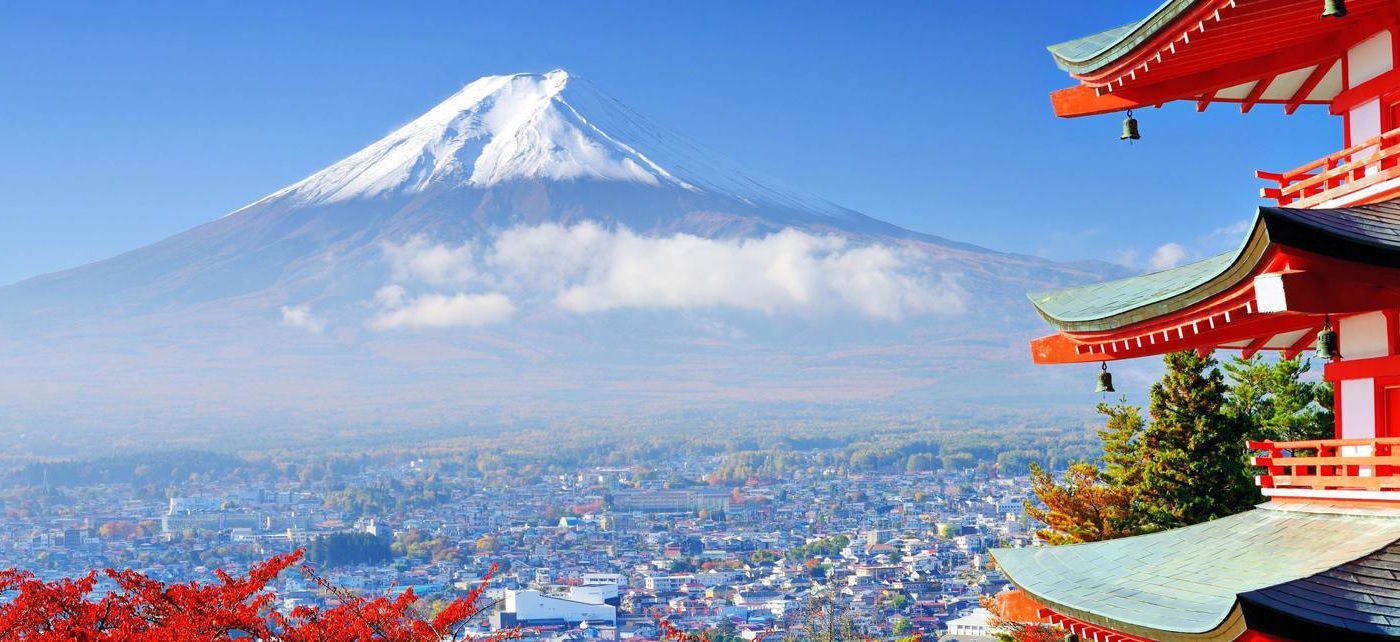Japan is an island nation in East Asia. Located in the Pacific Ocean, it lies to the east of the Sea of Japan, People's Republic of China, North Korea, South Korea and Russia, stretching from the Sea of Okhotsk in the north to the East China Sea and Taiwan in the south. The characters that make up Japan's name mean "sun-origin", which is why Japan is sometimes referred to as the "Land of the Rising Sun".
Japan is an archipelago of 6,852 islands. The four largest islands are Honshű, Hokkaidô, Kyűshű and Shikoku, together accounting for ninety-seven percent of Japan's land area. Japan has the world's tenth-largest population, with over 127 million people. The Greater Tokyo Area, which includes the de facto capital city of Tokyo and several surrounding prefectures, is the largest metropolitan area in the world, with over 30 million residents.
A Paleolithic culture around 30,000 BC constitutes the first known habitation of Japan. This was followed from around 14,000 BC by a Mesolithic to Neolithic semi-sedentary hunter-gatherer culture, which includes ancestors of both the contemporary Ainu people and Yamato people, characterized by pit dwelling and rudimentary agriculture. Decorated clay vessels from this period are some of the oldest surviving examples of pottery in the world. Around 300 BC, the Yayoi people began to enter the Japanese islands, intermingling with the Jômon. The Yayoi period, starting around 500 BC, saw the introduction of practices like wet-rice farming, a new style of pottery, and metallurgy, introduced from China and Korea.
Japan is a constitutional monarchy where the power of the Emperor is very limited. As a ceremonial figurehead, he is defined by the constitution as "the symbol of the state and of the unity of the people". Power is held chiefly by the Prime Minister of Japan and other elected members of the Diet, while sovereignty is vested in the Japanese people. Akihito is the current Emperor of Japan; Naruhito, Crown Prince of Japan, stands as next in line to the throne.
A major economic power, Japan has the world's third-largest economy by nominal GDP and by purchasing power parity. It is also the world's fourth largest exporter and fourth largest importer. Although Japan has officially renounced its right to declare war, it maintains a modern military force in self-defense and peacekeeping roles. After Singapore, Japan has the lowest homicide (including attempted homicide) rate in the world. According to both UN and WHO estimates, Japan has the longest life expectancy of any country in the world. According to the UN, it has the third lowest infant mortality rate.
Upper estimates suggest that 84–96 percent of the Japanese population subscribe to Buddhism or Shinto, including a large number of followers of a syncretism of both religions. However, these estimates are based on people affiliated with a temple, rather than the number of true believers. Other studies have suggested that only 30 percent of the population identify themselves as belonging to a religion. Nevertheless the level of participation remains high, especially during festivals and occasions such as the first shrine visit of the New Year. Taoism and Confucianism from China have also influenced Japanese beliefs and customs. Less than one percent of Japanese are Christian. In addition, since the mid-19th century numerous new religious movements have emerged in Japan.
The primary staple is Japanese rice. In the early modern era ingredients such as red meats that had previously not been widely used in Japan were introduced. Japanese cuisine offers a vast array of regional specialties that use traditional recipes and local ingredients. The Michelin Guide has awarded Japanese cities more Michelin stars than the rest of the world combined.


